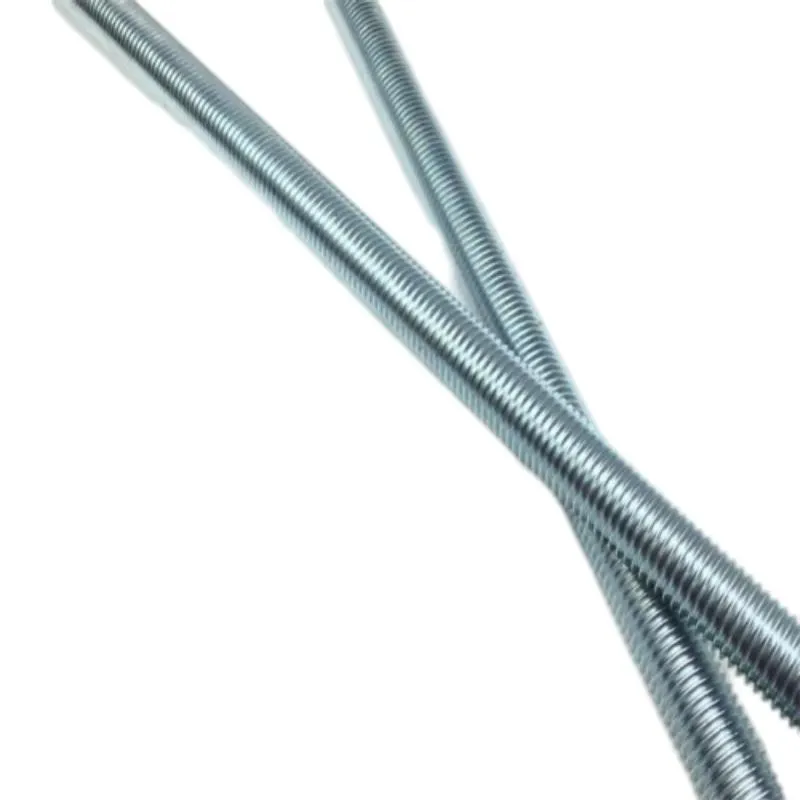Dec . 24, 2024 16:04 Back to list
Stainless Steel Expansion Bolts for Secure and Reliable Fastening Solutions
The Significance of Expansion Bolt in Stainless Steel A Comprehensive Overview
Expansion bolts, also known as expansion anchors or expansion fasteners, play a pivotal role in various construction and engineering applications. Among the different materials used for these anchors, stainless steel stands out due to its unique properties which enhance the overall performance and durability of the fastening system. This article delves into the significance of expansion bolts made from stainless steel, highlighting their benefits, applications, and considerations for use.
Understanding Expansion Bolts
Expansion bolts are designed to provide a secure fastening method that locks into place upon installation. They consist of a bolt, a sleeve, and a wedge. When the bolt is tightened, it forces the wedge against the sleeve, causing the sleeve to expand outward and grip the surrounding material. This mechanism allows for excellent load-bearing capabilities, making expansion bolts an ideal choice for a variety of substrates, including concrete, brick, and masonry.
Advantages of Stainless Steel Expansion Bolts
1. Corrosion Resistance One of the most significant advantages of stainless steel expansion bolts is their excellent corrosion resistance. Stainless steel is composed of iron, chromium, and, in some cases, nickel, which forms a protective layer against rust and corrosion. This property is particularly crucial in environments exposed to moisture, chemicals, or salt, such as marine and industrial settings.
2. Strength and Durability Stainless steel expansion bolts possess high tensile strength, allowing them to withstand substantial loads and stresses. They retain their structural integrity over time, making them suitable for critical applications where safety and reliability are paramount.
3. Aesthetic Appearance The sleek, polished finish of stainless steel gives expansion bolts an attractive appearance, making them a preferred choice in visible applications. This advantage is especially relevant in architectural contexts where both function and form are important.
4. Versatility Stainless steel expansion bolts are available in various sizes, styles, and grades to accommodate a wide range of needs. This versatility allows engineers and contractors to select the most appropriate type for specific applications, whether for residential, commercial, or industrial projects.
5. Temperature Resistance These bolts can withstand extreme temperatures without losing their mechanical properties. This feature makes them ideal for applications in high-heat environments, such as industrial plants and outdoor installations exposed to varying climatic conditions.
expansion bolt stainless steel

Applications of Stainless Steel Expansion Bolts
The utilization of stainless steel expansion bolts spans a broad spectrum of industries
- Construction and Civil Engineering Used for anchoring structural elements, facades, and fittings to concrete and masonry. - Marine Applications Ideal for boat docks, marinas, and other structures in coastal areas where corrosion resistance is essential. - Industrial Settings Suitable for machinery installations, safety railings, and assembly lines, where both strength and durability are required. - Residential Projects Commonly used in fastening fixtures, balconies, and heavy appliances, where reliable support is crucial.
Considerations When Using Stainless Steel Expansion Bolts
Although stainless steel expansion bolts offer numerous benefits, several considerations should be taken into account
1. Choosing the Right Grade Stainless steel is available in different grades (e.g., 304, 316), each with specific characteristics. For instance, Grade 316 offers superior corrosion resistance, making it more suitable for marine applications compared to Grade 304.
2. Proper Installation To ensure optimal performance, it is essential to follow the manufacturer’s instructions regarding installation techniques and torque specifications. Proper placement and depth can significantly impact load-bearing capacity.
3. Environmental Factors While stainless steel offers corrosion resistance, certain environments may require additional protective measures, such as coatings or specific treatment methods, to enhance longevity.
Conclusion
In conclusion, stainless steel expansion bolts are an indispensable tool in modern construction and engineering, combining strength, durability, and aesthetic appeal. Their ability to resist corrosion and handle significant loads makes them ideal for a variety of environments, from residential spaces to harsh industrial settings. By understanding their advantages and applications, engineers and builders can ensure the safety and reliability of their projects. As technology and materials continue to evolve, the roles of stainless steel expansion bolts are likely to expand, solidifying their position as a staple in fastening solutions.


